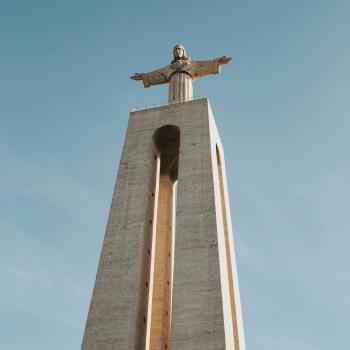 By Jerry D. Campbell
By Jerry D. Campbell
I was a fidgety kid in a West Texas Sunday School the first time I heard the parable of the Good Samaritan: A stranger of unstated character or religious affiliation is left for dead after a roadside robbery on a bandit-ridden trail. Lying unconscious, he's passed by two people who should have helped him, but didn't. The one person who shouldn't have stopped did.
At that time in my small world, I thought of the priests and Levites as Baptist, Church of Christ, or Methodist, which were the only options in my childhood town, population 438. The Samaritan seemed most likely to be a migrant farm laborer whose kind were essential to the farming/ranching industry but were relegated to the fringes of society.
Even a wiggly little boy in cowboy boots can understand the meaning of this simple tale: real neighbors reach across boundaries to have mercy on the downtrodden without any conditions. And real neighbors can be outsiders.
Sixty years later, it is clear that we continue to be better at creating boundaries than reaching across them. Over 200 formal Christian denominations exist in the United States, with hundreds more splinter and start-up groups, both within and beyond Christianity. Worldwide, Christian religious groups number in the tens of thousands -- over 38,000 by one account.
Our Christian past has been rife with breaking God's human family apart. Could the future of Christianity be about bringing it together?
Though our tendency to split up over fine distinctions is strong, world events have increased the need for mutual understanding across ideological boundaries. Population migration has brought adherents from the world's religious traditions into closer contact with each other, and all too frequently the result has been conflict and persecution. We know this because global communication has, metaphorically speaking, made the world a much smaller place.
Perhaps more than ever before, the world is in need of Good Samaritans willing to reach across boundaries with neighborly compassion. Do Christians have it in them to be today's Good Samaritans?
Christians, in all our remarkable diversity, cannot be dispassionate observers in the religious affairs of this century, nor can we think of ourselves as religious conquerors. Either makes us a divisive force in the global culture. If we as Christians are not actively and positively engaging our communities and building bridges with other people of faith (and people of no faith), then we are necessarily contributing to religious divisiveness and segregation.
At Claremont School of Theology, where I am president, we are taking concrete steps to provide our graduates with the skills and perspectives to reach across boundaries. You might think this orientation has always been the case in theological schools like Claremont, but it hasn't. In fact, theological education has been religiously segregated in a way that has hardened the boundaries. To teach Samaritan-like boundary crossing skills, we are bringing together a consortium of theological schools from different traditions. Each institution will continue to prepare clergy for its own tradition, but it will also contribute to the development of a new, shared curriculum in multi-religious understanding where students of all traditions will have the opportunity to meet one another, learn about other traditions, and share their stories. The shared curriculum will be located in a new inter-religious university to be created by the collaborators.
As we begin this new approach, two collaborators -- the Academy for Jewish Religion, California, and the Islamic Center of Southern California -- have joined Claremont in the venture, and cooperative efforts are already underway. In addition, we are actively seeking those from other traditions both within and beyond Christianity, to join in what promises to be a hopeful innovation in theological education.
As we work aggressively in this effort, the story of the Good Samaritan raises an important question: Who will be tomorrow's Samaritans? Who will be the healers of our war-torn, conflict-ridden world? As in Jesus' original telling of the story, will it be those who are different, foreign, and socially segregated from mainstream America? Will they be the only ones with the courage to reach across our boundaries with compassion and hope? Or can we Christians also be bridge-builders?




